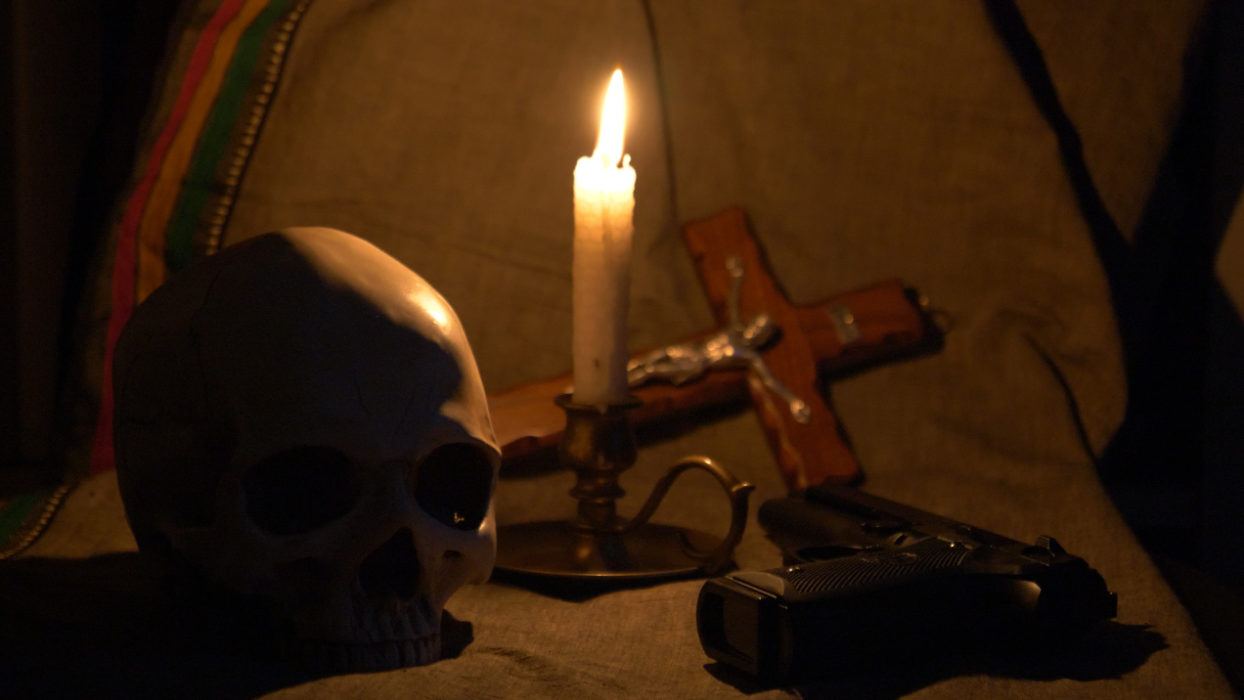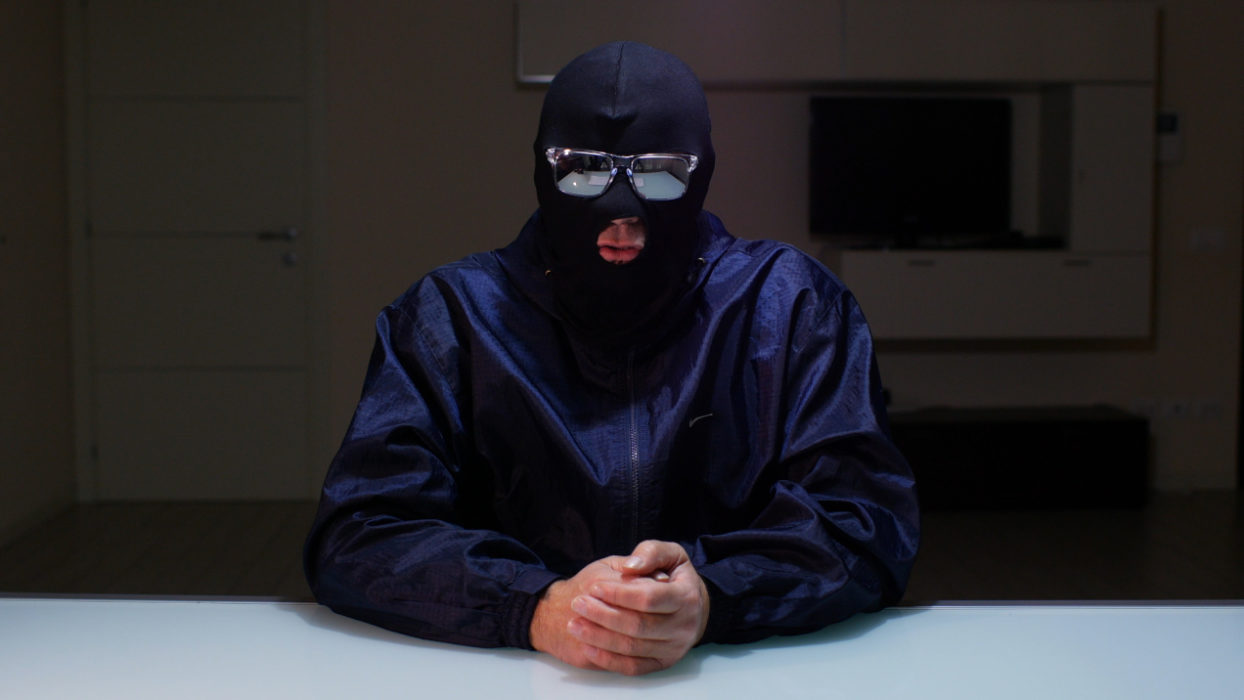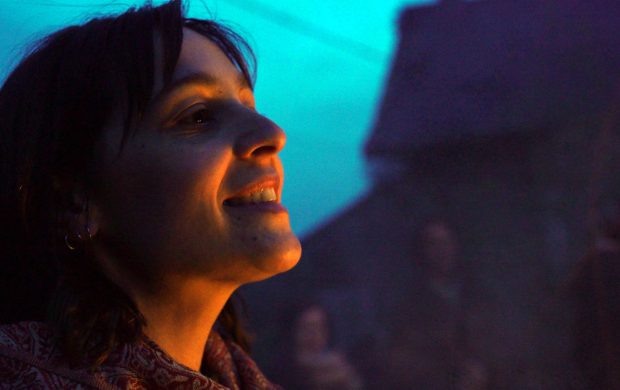Mafioso, au cœur des ténèbres
They claimed to be “men of honour”. In reality, they were killers in the Cosa Nostra (Sicily). Arrested in the early 1990s, they chose to work with the Italian justice and obtained the status of “cooperative witness”. Three of them tell their story: how they joined the mafia, what they experienced, why they decided to betray the organisation and get out. And in doing so, they bear witness to the “mafioso way of being”.
The darkness probed by Mafioso is above all the one where the face of its three protagonists is obscured, by backlighting or a simple black woollen balaclava. All of them have committed a dizzying number of murders on behalf of Cosa Nostra and its infamous godfather, Toto Riina. After their arrest, they agreed to cooperate with the judiciary and were granted the status of “pentiti” (state witnesses) against the Sicilian mafia, which was partly disbanded thanks to them. The film pursues an encounter begun in Mosco Levi Boucault’s previous film Corleone, from which the words of one of the men are reiterated without delay: “We really were butchers.” The darkness explored by the film is above all the dark conscience of these “men of honour”, educated under the law of a deadly system that allowed their allegiance to the octopus to override all else, including the life of their loved ones. By reconstituting the chilling trajectory of Toto Riina through a meticulous investigation, Corleone and its method coincide with Mosco Boucault’s fastidiously detailed sagas on the French Communist Party or the Red Brigades. By pursuing his theme of pentiti, Mafioso returns to the question that resurfaces in his works whenever they lean into the abyss that crime hollows out in a guilty conscience (the female killers in Roubaix, commissariat central). A possible formulation is given here by the filmmaker himself, when we hear his voice once only after one of the men describes the atrocities he has committed: “How can you sleep, after that?”
Jérôme Momcilovic
Folamour
Jan Zabrana, Fabio Cacia, Claudio Valerio
Vincent Guillon, Michele Tarantola
Tania Goldenberg
Jan Margolius
tania.goldenberg@gmail.com




